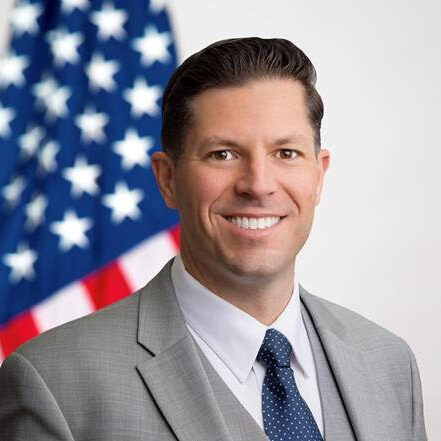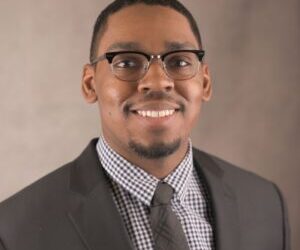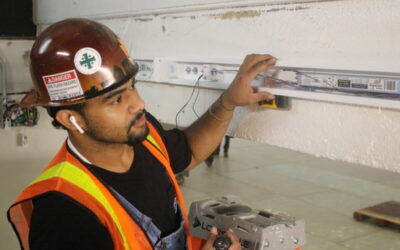Security sector jobs have changed.
Today, those in security must think about enabling a business and helping it thrive, in addition to maintaining a secure facility.
“Security touches all aspects of a business,” explains Brian Harrell, Vice President and Chief Security Officer at AVANGRID, based in Orange, Connecticut. “We’re trying to help the business achieve their mission, while promoting security and resilience.”
AVANGRID has assets and operations in 24 states, including eight electric and natural gas utilities serving more than 3.3 million customers in New York and New England, as well as a portfolio of renewable energy generation facilities across the U.S.
Responsible for the company’s physical and cybersecurity, privacy, intelligence, and fire protection units, Harrell must use intelligence to anticipate risks to the organization on a daily basis.
We caught up with Harrell to learn more about his role.
What is your typical day like?
In a security situation, awareness is king. I tell my staff I never want to be surprised by anything. So, we keep communication channels open. Every morning, we have a daily update brief, or “DUB” call. We talk about what happened in every area of security, including cyber, physical, intelligence, and fire protection, in the last 24 hours and what we anticipate for the next 24 hours. What are our national security partners in the federal government saying? What anomalies or actions do we see in our own system? We bring awareness to the whole team. We don’t want silos. We want everyone to be aware, on the same page, and working in the same direction. Ultimately, our goal is to protect our people, information, and assets.
What’s the most rewarding part of your work?
Every day is different – whether we’re mobilizing for a storm, reacting to nearby protests, implementing a cyber response, or working with local authorities out West in the case of wildfires. This means we’re constantly in communication about security strategies across the country; there’s never a boring day.
What kind of training was necessary for your current job?
I started in the military, spending nine years in the U.S. Marine Corps doing anti-terrorism and force protection. Then I had a short stint in law enforcement in Los Angeles and just realized that I wanted something greater. I decided to go into security work in the private sector. I spent time at the North American Electric Reliability Corporation and also lead the security for Duke Energy.
Most recently before AVANGRID, I was appointed by the President of the United States to serve as the sixth Assistant Secretary for Infrastructure Protection at the Department of Homeland Security and the first Assistant Director for Infrastructure Security at the U.S. Cybersecurity and Infrastructure Security Agency (CISA). It was a great opportunity, leading thousands of people and learning what the national threat landscape looks like and what’s happening with our nation-state adversaries overseas and how to best instruct AVANGRID to battle back those threats.
What kinds of skills are required to do your job?
Being flexible and not being so rigid is a big part of my job. Having a business mindset and always asking, “How do we reduce risk?” is vital. Also, having key relationships that you can reach out to in times of need to get the answers you need or intelligence to make the right decisions is incredibly important.
We also have to always anticipate. We anticipate through intelligence and potential and current security threats. We never want to be caught by surprise.
What advice would you give to people interested in getting into a job like yours?
When you are starting your career, certifications are important. And while you start by being very focused on the technical aspects of cybersecurity, you have to work at being able to communicate well to those around you who may not understand these technical subjects. You have to learn how to translate security risks into corporate speak so everyone in the C-suite can understand, consume, and invest in the right opportunities.
Building relationships during your career is also very important. I don’t think I could do my job well today without having key relationships in the national security and intelligence space. Knowing who to reach out to for clear information, help, or the resources you need is critical. Sometimes, seconds matter in these cases, so having that Rolodex to access helps.
What are your future plans?
AVANGRID is focused on sustainable, clean and green energy, so we have an opportunity to be a national leader in that space.
Most recently, AVANGRID received federal approval that will enable the beginning of construction activities on the first commercial-scale offshore wind project in the U.S. The project represents the beginning of an energy transition in New England where clean power will be created by harnessing the region’s strong coastal winds.
I want to continue to position AVANGRID as an industry leader. We want to make sure as we continue to become a leader in sustainable energy that we’re anticipating what security threats and challenges could be associated with this new offshore world.




